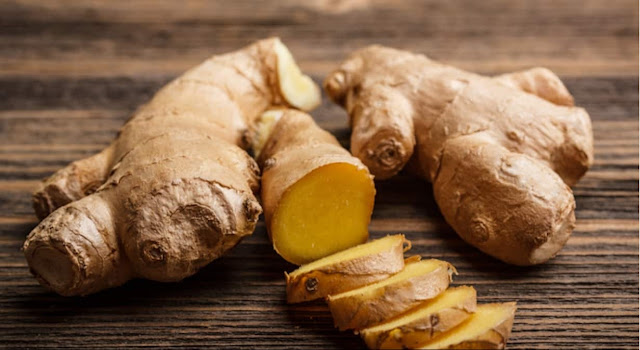The 13 Healthiest Root Vegetables
The 13 healthiest root vegetables to add to your
diet.
1. Onions
Onions are popular root vegetables, serving as a staple
ingredient in many cuisines.
They’re high in fiber, vitamin C and antioxidants .
Antioxidants are compounds that can protect your cells
against oxidative damage and help prevent disease.
Research shows that eating onions may be associated with a
wide array of health benefits.
For instance, one study found that eating 3.5 ounces (100
grams) of raw onions per day significantly reduced blood sugar levels in people
with diabetes.
What’s more, other research observed that onions may possess
powerful anticancer properties, with observational studies linking a higher
intake of this root vegetable to a lower risk of common types of cancer .
Onions work well in a variety of meals and can easily be added
to salads, soups, scrambled eggs, casseroles, rice or pasta dishes and many
more.
Summary Onions are high in antioxidants and may help reduce
blood sugar levels and your risk of certain cancers.
2. Sweet Potatoes
Sweet potatoes are vibrant and delicious root vegetables
that are highly nutritious and jam-packed with health benefits.
They’re rich in fiber, vitamin C, manganese and vitamin A
and a good source of several antioxidants — including beta-carotene,
chlorogenic acid and anthocyanins.
A review of three studies showed that eating 4 grams of
white sweet potato extract each day for 12 weeks improved blood sugar control
in people with diabetes.
Due to their vitamin A content, some studies suggest that
this root vegetable may also improve immune function, protect against vision
loss and support skin health.
Sweet potatoes can be baked, boiled, roasted or sautéed and
enjoyed as a delicious side dish or added to everything from sandwiches to
salads to breakfast bowls.
Summary Sweet potatoes may help improve blood sugar control
and are
high in vitamin A, which may preserve vision and improve
immunity and skin
health.
3. Turnips
Turnips are a delicious root vegetable and have been
cultivated for centuries.
They have an impressive nutrient profile, being a great
source of vitamin C, fiber, manganese and potassium.
Adding vitamin C to your diet can help boost your immunity,
with one study noting that getting enough of this vitamin could help reduce
symptoms and shorten the severity of respiratory infections, such as the common
cold.
Additionally, studies show that consuming more cruciferous
vegetables, such as turnips, may be associated with a lower risk of stomach,
breast, colorectal and lung cancer.
Turnips can be swapped into nearly any recipe in place of
potatoes. Try making turnip fries, coleslaw, stir-fry or salad.
Summary Turnips are high in immune-boosting vitamin C and
considered a
root as well as cruciferous vegetable. Eating it may be
associated with a lower
risk of certain types of cancer.
4. Ginger
Ginger is a flowering plant from China that is closely
related to other root vegetables like turmeric.
It’s loaded with antioxidants, including a specific compound
called gingerol, which has been associated with a long list of health benefits .
One study in 1,278 pregnant women found that ginger was
effective at reducing nausea and morning sickness .
It may also decrease pain and inflammation, with other
research showing that ginger extract could help relieve menstrual pain and
reduce symptoms in people with osteoarthritis .
Ginger makes a great addition to tea, soups, smoothies and
stews and can bring a zesty zing to just about any dish.
Summary Ginger is rich in antioxidants and can help reduce
nausea and
decrease pain and inflammation.
5. Beets
Beets are one of the most nutritious root vegetables
available, packing a good amount of fiber, folate and manganese into each
serving.
They’re also high in nitrates, which are beneficial plant
compounds that can help dilate your blood vessels, potentially lowering blood
pressure and improving heart health .
Studies also show that eating beets may improve exercise
performance and increase blood flow to your brain .
Additionally, animal studies have found that beetroot
extract may have anticancer properties and may slow the growth and spread of
cancer cells .
To take advantage of the unique health benefits of beets,
try roasting, juicing, pickling, boiling or steaming this delicious root
vegetable.
Summary Beets are a good source of nitrates and may improve
exercise
performance, increase blood flow and decrease the growth of
cancer cells —
according to human and animal studies.
6. Garlic
Garlic is a root vegetable that belongs to the Allium genus
and is closely related to onions, leeks, chives and shallots.
Each serving of garlic boasts a good amount of several
important nutrients, including manganese, vitamin B6 and vitamin C.
Plus, it’s well-known for its medicinal properties, which
are mostly attributed to the compound allicin, which is released when cloves of
garlic are crushed, chewed or chopped.
Studies have found that garlic can promote heart health by
lowering blood pressure and levels of total cholesterol and triglycerides.
It may also boost immune function, as research shows that it
can decrease symptom severity and help prevent infections, such as the common
cold (37Trusted Source, 38Trusted Source).
Best of all, garlic is highly versatile and can be used to
amplify the flavor of your favorite savory soups, sauces, side dishes and main
courses.
Summary Garlic has potent medicinal properties due to the
compound
allicin. It may help improve your immunity, reduce blood
pressure and decrease
cholesterol and triglyceride levels.
7. Radishes
Radishes may be small, but they manage to pack a punch when
it comes to nutrition.
They’re low in carbs and calories yet contain a good amount
of fiber and vitamin C.
Radishes also have antifungal properties and have been
effective against several types of fungus in test-tube and animal studies .
Not only that, but one rat study found that the leaves of
the radish plant may protect against stomach ulcers .
Radishes are great for bringing a bit of crunch to your
meals or snacks. Try adding slices to slaws, sandwiches, salads or tacos to
give your dish a nutritious and tasty upgrade.
Summary Radishes contain a good amount of fiber and vitamin
C. They may
also have antifungal properties and could protect against
stomach ulcers,
according to animal and test-tube studies.
8. Fennel
Known for its licorice-like flavor, fennel is a flowering
plant species closely related to carrots.
In addition to supplying very few calories per serving,
fennel packs fiber, vitamin C, potassium and manganese.
It also contains the compound anethole, which gives fennel
its distinct flavor, aroma and a wide array of health benefits.
One rat study showed that anethole was able to modify some
of the enzymes involved in the metabolism of carbs to help reduce blood sugar
levels.
What’s more, test-tube studies observed that anethole has
antimicrobial properties and may inhibit the growth of bacteria.
Fennel can be enjoyed fresh, roasted or sautéed, as well as
mixed into salads, soups, sauces and pasta dishes.
Summary Fennel contains the compound anethole, which has
been shown to
reduce blood sugar and block the growth of bacteria in
test-tube and animal
studies.
9. Carrots
As one of the most well-known root vegetables, carrots also
top the charts as one of the most nutritious.
They’re brimming with vitamins A and K, as well as the
important antioxidant beta-carotene .
Eating carrots has been linked to improved antioxidant
status and lower cholesterol levels in both humans and animals .
Other research shows that a higher intake of carotenoids,
such as beta-carotene, may be associated with a lower risk of certain types of
cancer, including breast, prostate and stomach cancer.
What’s more, eating carotenoids may protect against
age-related macular degeneration (AMD), the leading cause of vision loss.
Carrots make a great snack when eaten raw or dipped in
hummus, but they can also be cooked and used in stir-fries, stews or side
dishes.
Summary Carrots are high in beta-carotene, which may be tied
to a lower
risk of vision problems and certain types of cancer. Eating
carrots has also
been linked to lower cholesterol levels and improved
antioxidant status.
10. Celeriac
Also known as celery root, celeriac is a highly versatile
and delicious root vegetable that’s easy to cook and enjoy.
It contains a hearty dose of vitamin C and phosphorus and is
also an excellent source of vitamin K, squeezing in 80% of the daily
recommended value in a single one-cup (156-gram) serving.
Vitamin K is an essential nutrient, necessary for proper
blood clotting .
It’s also needed for the function of osteocalcin, a protein
hormone that is key for your bone health .
Celeriac has a nutty taste and crunchy texture that works
especially well in salads. It can also be boiled, roasted, baked or mashed and
used in place of potatoes in nearly any recipe.
Summary Celeriac is a nutrient-rich root vegetable that’s
high in
vitamin K, a vitamin that is necessary for blood clotting
and bone health.
11. Turmeric
Turmeric is a type of root vegetable that belongs to the
same plant family as ginger and cardamom.
The rhizomes, or root, of the plant are often ground into a
spice, which is used to add a splash of color, flavor and health benefits to
many dishes.
Turmeric contains a compound called curcumin, which has been
shown to prevent blood clot formation, lower cholesterol levels and reduce
markers of inflammation in both test-tube and animal studies .
Research in humans also suggests that curcumin may alleviate
joint pain, stabilize blood sugar levels and decrease symptoms of depression .
Turmeric is widely available as a spice and can be added to
both savory and sweet recipes, as well as drinks, such as golden turmeric milk.
To reap its benefits, be sure to pair turmeric with black
pepper, as the latter contains a compound that can significantly boost the
absorption of curcumin in your gut .
Summary Turmeric contains curcumin, a compound that has been
associated
with a long list of benefits, including improved joint pain,
blood sugar levels
and symptoms of depression.
12. Potatoes
Potatoes are incredibly versatile and widely available, with
up to 2,000 different varieties currently cultivated in 160 countries around
the world.
They’re also very nutritious, packing a good chunk of fiber,
vitamin C, vitamin B6, potassium and manganese.
Potatoes that have been cooked and cooled are also high in
resistant starch, a type of starch that passes undigested through your
digestive tract and helps feed your beneficial gut bacteria.
Not to mention, boiled potatoes are an incredibly filling
food, keeping you feeling fuller for longer, which may promote weight loss.
Steer clear of fried potatoes or processed potato products,
which are often high in fat, salt and calories yet lacking in nutrition.
Instead, select baked, boiled or steamed potatoes to get the most nutrients.
Summary Potatoes pack many nutrients and are high in
resistant starch.
They’re also very filling, which may promote weight loss.
13. Rutabaga
Rutabagas are root vegetables that belong to the mustard
family and are commonly cultivated for their edible leaves and roots.
Each serving of rutabagas supplies plenty of vitamin C,
potassium and manganese along with disease-fighting antioxidants.
Rutabagas are also a good source of fiber, which can help
support your digestive health and lower blood pressure and cholesterol levels.
They also provide glucosinolates, sulfur-containing
compounds that are commonly found in cruciferous vegetables that may help
protect against cancer cell development and growth and prevent oxidative stress.
Rutabaga can be mashed, baked or roasted and enjoyed in
soups, salads, noodles and even desserts.
Summary Rutabagas are high in fiber and glucosinolates,
which may help
protect against cancer and prevent oxidative stress.
Source: https://www.healthline.com/nutrition/root-vegetables#TOC_TITLE_HDR_15















Good post 👍
ReplyDeleteThanks for sharing 🧅🍠🥕🧄🥔
ReplyDeleteThank for knowledge sharing.
ReplyDeleteThanks
ReplyDeleteMost are my favourite vegetables
ReplyDeleteSweet potatoes and carrots are my favourite
ReplyDeleteOnions with powerful anticancer properties.
ReplyDeleteSweet potato 🍠 is favv ❤️
ReplyDeleteI like eat all😁😁😁😁
ReplyDeleteI like Potatoes with many nutrients and high in resistant starch.
ReplyDeleteThanks for sharing.
ReplyDeleteHave a great day.
ReplyDelete